“Addressing Trauma Through the Arts” is original curriculum co-designed by Melissa O’Rear, Program Manager of Education at COPPR, and Paula Hergert, Prevention & Policy Specialist of El Paso County Public Health. It is rooted in neuroscience, arts integration, and care. It explores the effects of trauma on brain function and ways that specific forms of arts participation can immediately and cumulatively improve those functions. Through this curriculum, teachers and leaders gain practical strategies to address trauma behaviors in the classroom – without disciplinary or exclusionary actions, and better results.
“Addressing Trauma for the Arts is not a replacement for clinical treatment or school counseling – instead, it is relevant pedagogy that can be used daily by teachers of any subject to address behavior dysregulation … and move students into operating from their frontal cortex for creativity, connection, and success.
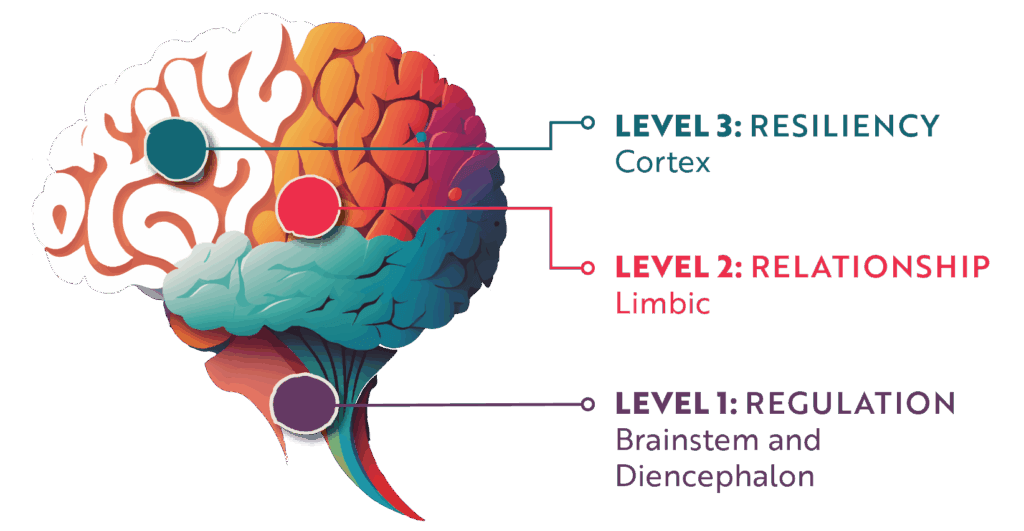
Before we expect students to operate from their frontal cortex, we need to regulate the lower parts of their brain. Only through regulation and safety (Level 1), can we establish relationships
(Level 2) and after those two aspects are in place, then students can take risks, create and be curious (Level 3.)
The arts are highly relevant in just the ways our brains need in order to regulate, form relationships, and build resiliency.
“Addressing Trauma through the Arts” is strengths-based, inclusive, neurosequential and trauma-informed. The Cultural Office is honored to share this versatile, practical approach to leveraging the arts across educational spaces – in schools, in community, in adult learning, and beyond. We invite you to explore the offerings below and get involved!
NON-CLINICAL * STRENGTHS-BASED * INCLUSIVE * NEUROSEQUENTIAL * TRAUMA-INFORMED
In the Addressing Trauma through the Arts Toolkit, you will find a variety of arts strategies that are rooted in neuroscience. The toolkit includes 30 strategies that correlate with the bottom-up development of the brain, first focusing on safety and calm, then working up to connection, and then critical-thinking and autonomy. The strategies include art forms of drama, dance, visual art, music, and creative writing. We are proud that this Toolkit is created by educators in the Pikes Peak region, with real-world experience in the use of the arts to increase regulation, relationship and resiliency.
Originally written with students in mind who are dysregulated from toxic stress and trauma, these strategies can be used to strengthen the daily framework of any class, of any age, that desires participants to be fully present in order to learn and thrive!
The “Addressing Trauma through the Arts” Toolkit is your gift with a donation of any amount to the Arts Education program at the nonprofit Cultural Office of the Pikes Peak Region. Your donation receipt will be emailed to you, with a link to access the full toolkit right away.
PROFESSIONAL TRAININGS
8-Week Book Club
- Dates: Fall 2025 Thursdays, Sept 4, Sept 18, October 2, Oct 16, Oct 30, Nov 13, Nov 20, Dec 4
- Time: 4:30-6:30
- Locations: Zone5 and Cultural Office in Colorado Springs, CO
- 1 credit offered through Adams State Univ. ($55/teacher)
- Fulfills 10 hours Trauma-Informed Care CEU’s
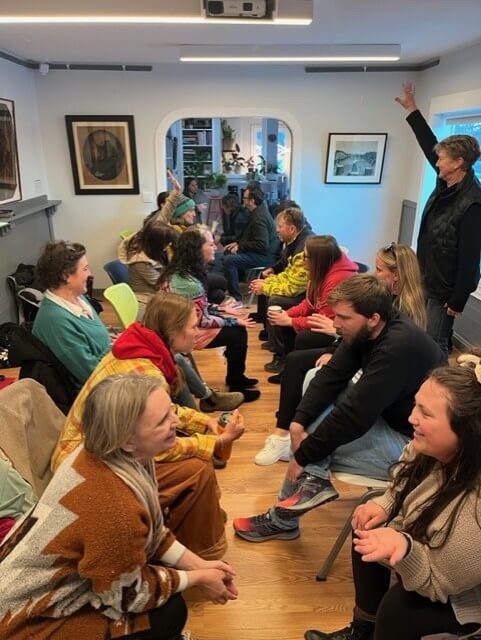
In-School Professional Development (PD)
- 1-hour, 2-hour or 3-hour sessions available
- Certificate of CEU’s can be applied
- Open to any school wanting to bring tangible strategies to educators
- Fulfills CDE requirements for trauma-informed care training.
Teachers will walk away with a strong understanding of how trauma can effect the developing brain and the consequences that follow, as well as practical strategies that support all students. As part of our interactive format, time will be given for teachers to plan implementation of these strategies into their own curriculum.
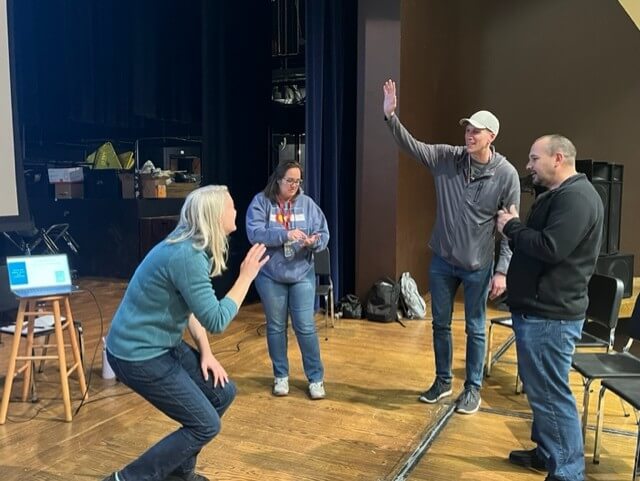
Public Speaking / Conferences / Panels
The creators of “Address Trauma through the Arts” are available for presentations to a variety of groups interested in this intersection of the arts and neuroscience for education. Contact the Cultural Office to request keynotes, conference breakout sessions, and panel discussions about “Addressing Trauma through the Arts” and its new Toolkit. Speakers can include Melissa O’Rear, Program Manager of Education at COPPR, and Paula Hergert, Prevention & Policy Specialist of El Paso County Public Health, as well as educators who are actively using these strategies today.
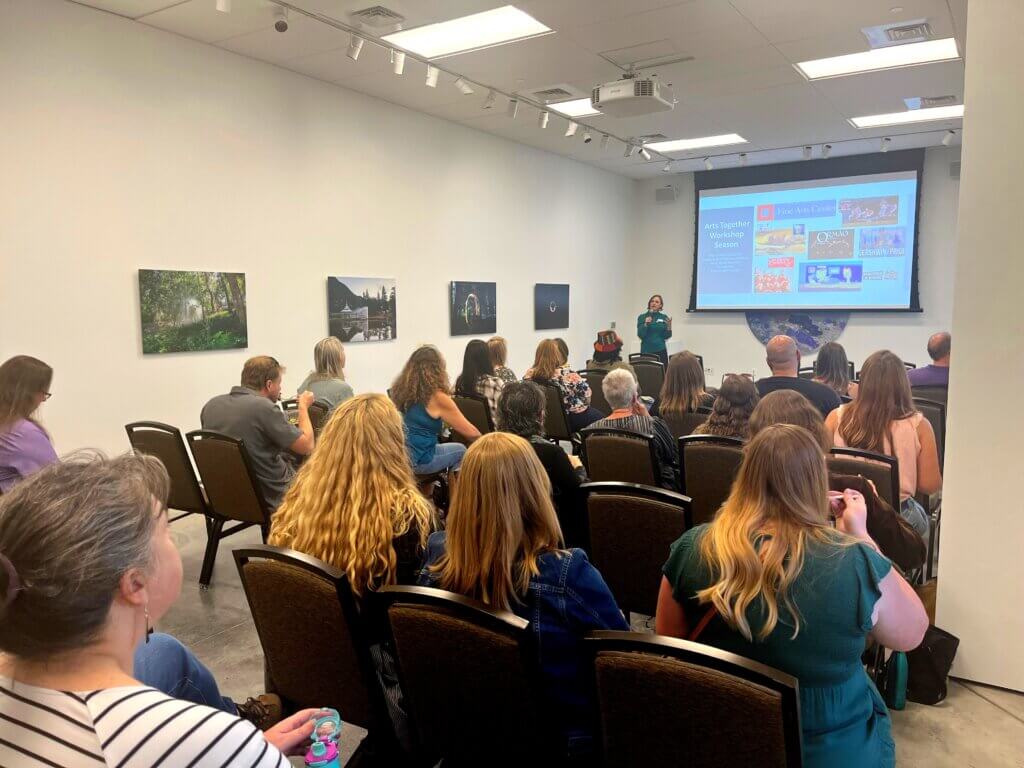
CORE CONCEPTS

NEUROSCIENCE
The brain develops from the bottom up: from the brainstem, the primitive and reactive part of the brain, up to the frontal cortex, the more complex part of the brain. Our brain just doesn't develop in a fixed way, it creates a codebook based on (early) experiences which influence how our brain is wired.
When toxic stress and trauma disrupt that development, the brain can become dysregulated and unable to access the higher regions where learning happens. It's important to approach others with neuroscience-based compassion for how past experiences shape present responses.

Dysregulation
Behavior is communication. There are certain signs that someone cannot access the higher parts of their brain and Level 1 arts regulation strategies are needed:
- Restlessness/Hyperactivity
- Freezing or Shutting Down
-Sadness or Emotional Numbness
-Difficulty calming after being upset
-Defiance / Refusal to Participate
-Trouble concentrating/thinking

Why the Arts?
The arts offer natural ways of supporting every development phase of the brain. Through calming the nervous system through sensory-rich experiences, the arts correlate with the needs of the brainstem and diecephelon. Moving up to the limbic region, where relationship is the focus, an abundance of art modalities foster healthy bonds between others, creating connection and trust. Finally, the arts strengthen expression, problem-solving, and emotional processing in the frontal cortex, helping individuals adapt, heal, and thrive! The arts work in just the ways our brains need to regulate, relate, and build resiliency.
LEARN MORE
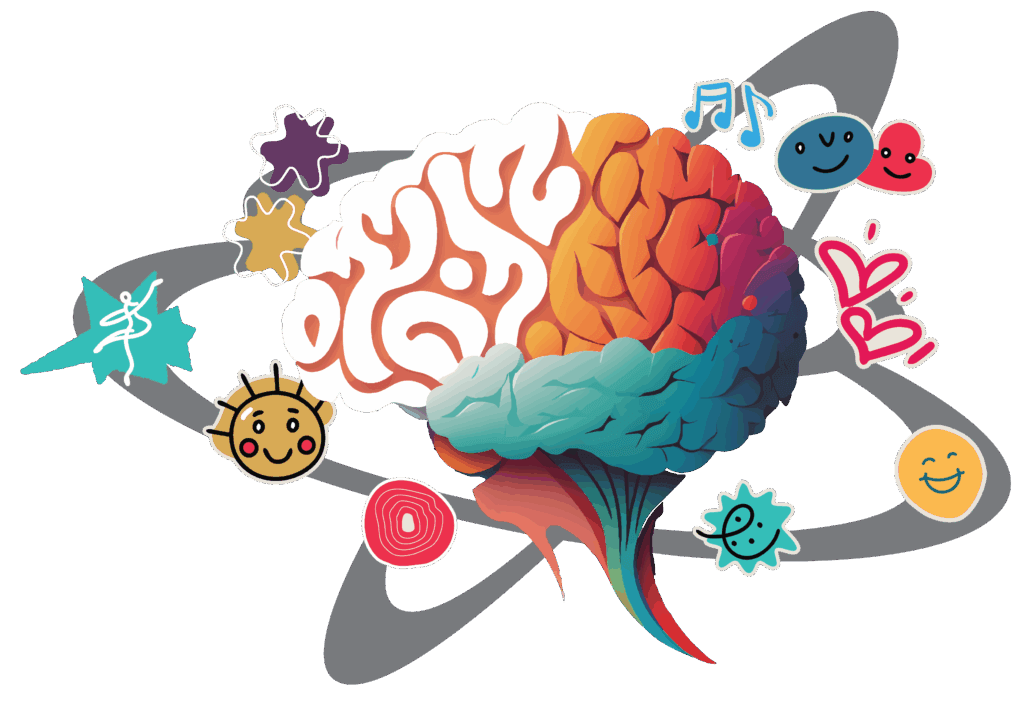
Questions about the “Addressing Trauma Through the Arts” initiative at the Cultural Office of the Pikes Peak Region can be directed to: Melissa O’Rear, Program Manager of Education, at Melissa@CulturalOffice.org or (719) 634-2204.
For additional programs & resources supporting mental wellness within education settings, visit our friends at:
The Mindfulness & Positivity Project!
